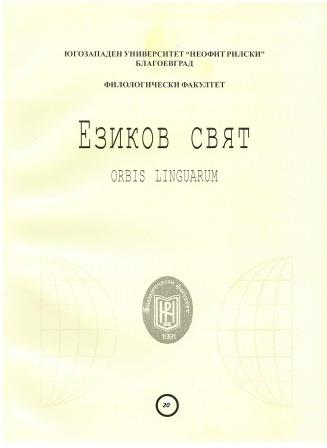ЗА НЕГАТИВНИТЕ ФОРМИ НА БЪДЕЩИТЕ ВРЕМЕНА НА КОНКЛУЗИВА В СЪВРЕМЕННИЯ БЪЛГАРСКИ ЕЗИК
ON THE NEGATIVE CONCLUSIVE FORMS OF POSTERIOR TENSES IN MODERN BULGARIAN
Author(s): Krasimira AleksovaSubject(s): Language and Literature Studies, Theoretical Linguistics, Morphology, Philology
Published by: ЮГОЗАПАДЕН УНИВЕРСИТЕТ »НЕОФИТ РИЛСКИ«
Keywords: negative forms; variability; the conclusive; the renarrative; posterior tenses; evidentiality; unification
Summary/Abstract: The research paper examines cases of variability in the paradigm of the negative conclusive (inferential) forms of the posterior tenses in modern Bulgarian. The analysis outlines tree variants: i) with нямало съм component (нямало съм да пиша, нямало си да пишеш, нямало е да пише etc.), ii) with нямало е component (нямало е да пиша, нямало е да пишеш, нямало е да пише etc.), iii) with negative particle не (не съм щял да пиша, не си щял да пишеш, не е щял да пише etc.). Only the first and third variants are mentioned in previous publications concerning conclusive forms in modern Bulgarian (Kutsarov, 2007, Nitsolova, 2008). The variability itself is seen as a display of the non-established formal paradigm of the conclusive evidential. That variability suggests that the process of grammaticalization has not come to an end: which points out a problem regarding one syntagmatic parameter that has not been incorporated in Lehmann’s classification of the paradigmatic and syntagmatic parameters of the process of grammaticalization (Lehmann, 2002). In our database only the conclusive variant with нямало е component is attested. The variant with нямало съм component has renarrative meaning. The predominance of нямало е variant is seen as a case of unification of the conclusive paradigm.
Journal: Езиков свят - Orbis Linguarum
- Issue Year: 20/2022
- Issue No: 2
- Page Range: 184-190
- Page Count: 7
- Language: Bulgarian

